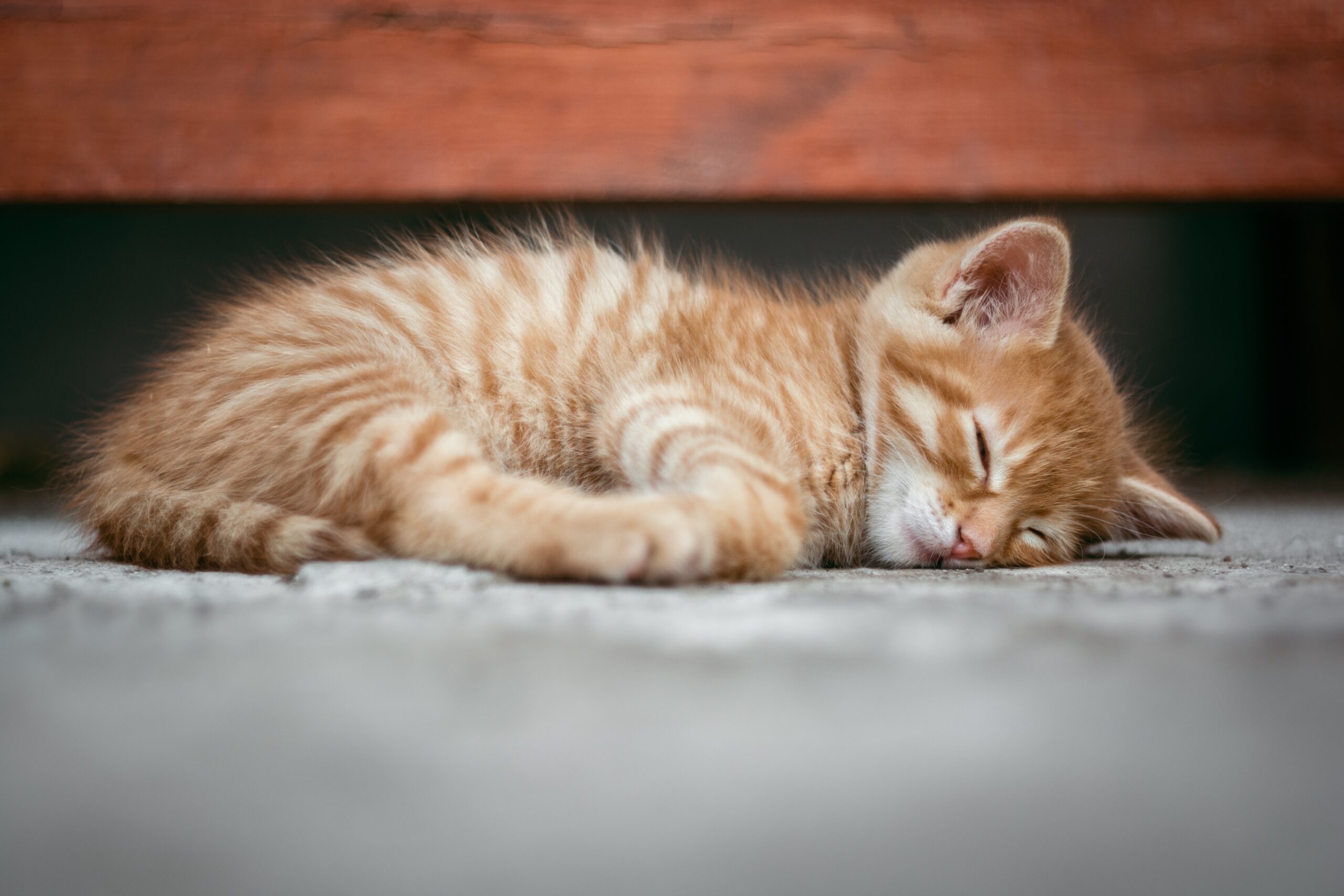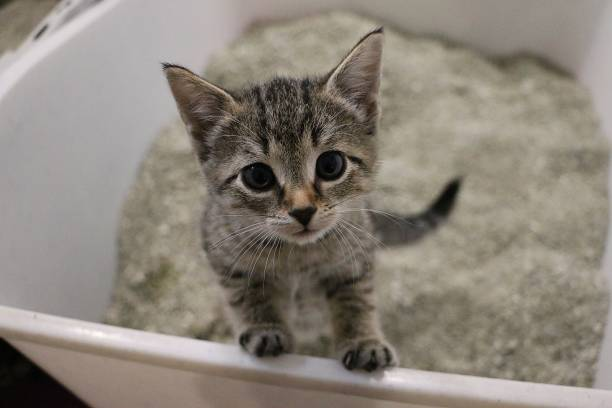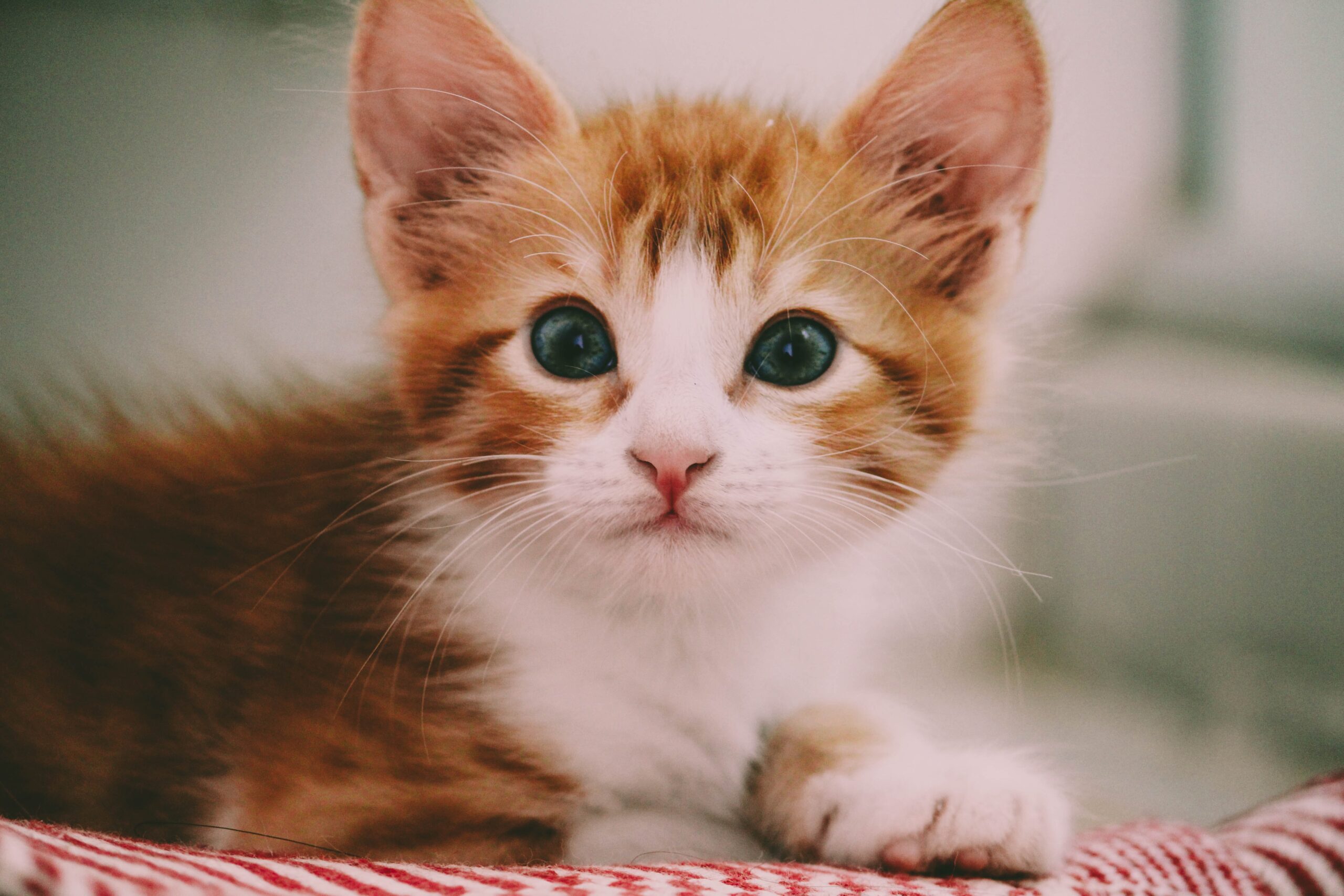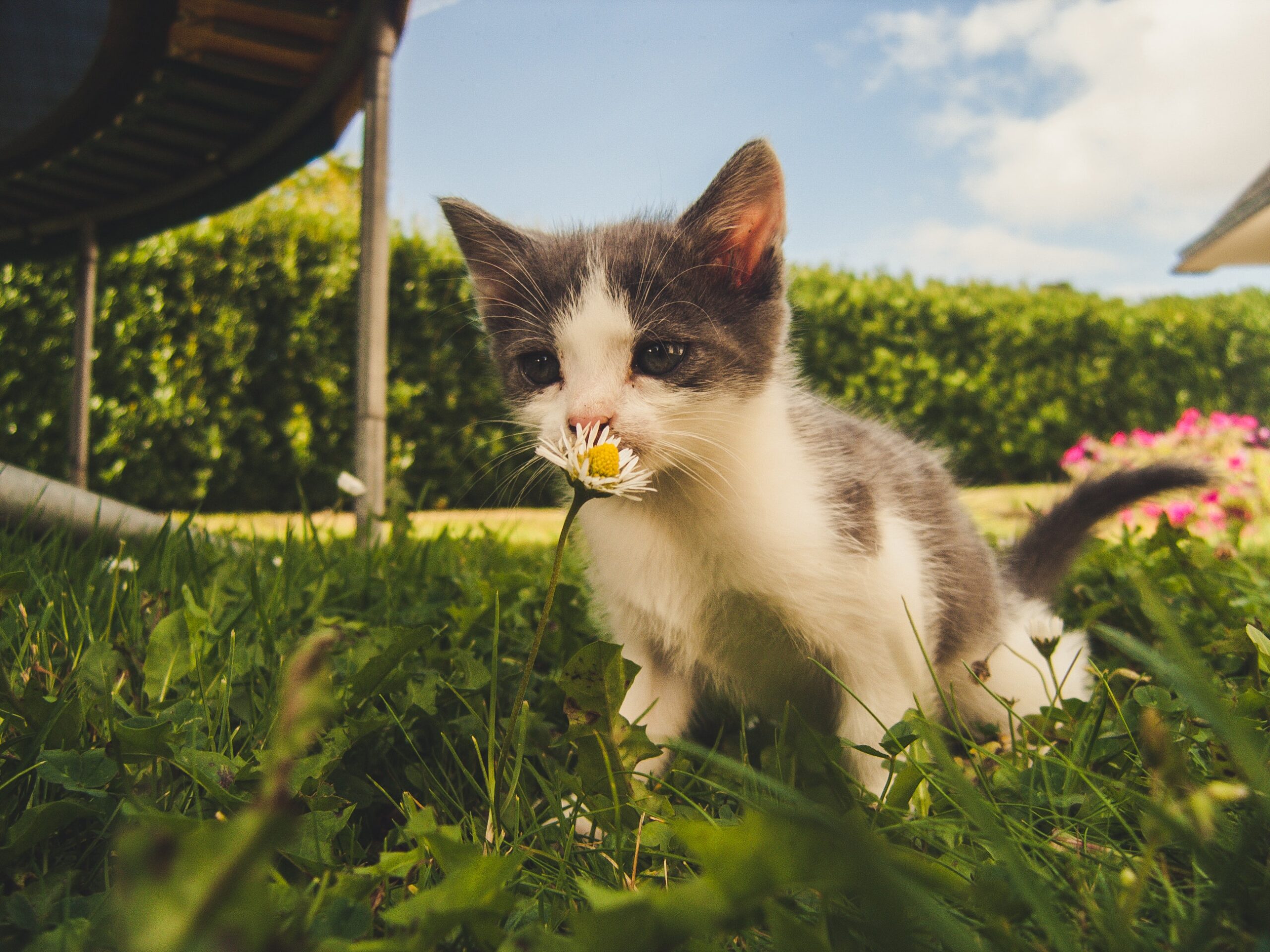Introduction
Briefly introduce the importance of pet ownership and its responsibilities.
Owning a pet is a rewarding and heartwarming experience that brings joy and companionship to our lives. Whether it’s a playful pup or a graceful feline, pets become cherished members of our families, offering unconditional love and loyalty. However, with the privilege of pet ownership comes a significant responsibility – ensuring the health and well-being of our beloved companions. As responsible pet owners, we must prioritize the care and attention required to keep our furry friends happy and healthy throughout their lives.
State the primary focus of the article: the significance of regular veterinary care for cats.
Among the numerous aspects of pet care, one critical aspect stands out – regular veterinary care for our feline companions. Cats, with their enigmatic nature and independent personalities, may seem self-sufficient, but they too need professional healthcare to thrive. Just like humans, cats can suffer from various health issues, some of which may go unnoticed until they become severe. Regular visits to the veterinarian play a pivotal role in safeguarding their well-being and detecting potential health concerns early on.
Present a thesis statement outlining the benefits of taking cats to the vet.
In this article, we delve into the indispensable role of veterinary care in the lives of our beloved cats. We will explore the myriad benefits of taking our feline friends to the vet regularly. From preventive health measures that avert potential illnesses to early detection and timely treatment, veterinary visits not only extend the lifespan of our furry companions but also enhance their quality of life. Furthermore, we will discover how these visits foster responsible pet ownership by addressing behavioral issues, promoting dental health, and managing weight and nutrition effectively. As devoted cat owners, understanding the significance of regular veterinary care empowers us to provide the best possible life for our whiskered companions.
Understanding Feline Health
Discuss the unique nature of cats and their independent behavior.
Cats have long captured our fascination with their mysterious and independent demeanor. As natural-born hunters, they possess keen senses and agility that allow them to explore the world around them with grace and precision. Unlike dogs, cats tend to be more self-reliant, often seeking solitude and moments of quiet contemplation. This self-sufficiency can sometimes lead cat owners to believe that their feline friends require less attention and care compared to other pets. However, this assumption is far from the truth.
Highlight the common health issues that cats may encounter without proper veterinary care.
While cats may seem self-contained and stoic, they are susceptible to a range of health issues that can be exacerbated without proper veterinary care. Common ailments among cats include dental problems such as periodontal disease and tooth decay, which can lead to pain, difficulty eating, and other health complications. Additionally, cats may suffer from urinary tract infections, respiratory infections, parasitic infestations, and skin disorders, all of which require prompt and professional medical attention.
Furthermore, cats are masters at hiding signs of illness due to their instinctual survival instincts, making it challenging for owners to identify health issues early on. Without regular veterinary check-ups, these seemingly minor health problems can escalate into severe and life-threatening conditions, leading to a decreased quality of life for our feline companions.
Emphasize the importance of preventive care to maintain a cat’s well-being.
Prevention is undeniably better than cure, especially when it comes to feline health. Just like humans, cats benefit immensely from preventive care measures. Regular veterinary visits serve as essential opportunities for early detection of potential health concerns, even before any symptoms manifest. Veterinarians can conduct thorough physical examinations, screenings, and diagnostic tests to catch underlying issues that might otherwise go unnoticed.
Moreover, preventive care encompasses various vital aspects of feline health, including vaccinations to protect against infectious diseases like rabies and feline panleukopenia. These vaccinations not only shield our cats from life-threatening illnesses but also contribute to the overall community’s well-being by preventing the spread of contagious diseases.
In conclusion, understanding the unique nature of cats and their health needs empowers us to become proactive in ensuring their well-being. Regular veterinary care is a fundamental pillar of responsible cat ownership, providing a means to address potential health concerns early on, maintain their happiness, and extend their years of companionship. By embracing the significance of preventive care, we demonstrate our unwavering commitment to providing the best life possible for our feline friends.
The Role of Regular Vet Visits
Explain the recommended frequency of veterinary visits for cats (e.g., annual check-ups).
Regular veterinary visits are the cornerstone of proactive feline healthcare. To ensure the optimal well-being of our beloved cats, experts recommend scheduling annual check-ups with a qualified veterinarian. These routine visits allow for a comprehensive evaluation of your cat’s health and serve as an opportunity to discuss any concerns or changes in behavior you may have observed.
While some cats may appear healthy and show no signs of illness, underlying health issues can still exist. Annual check-ups enable veterinarians to detect potential problems before they progress to more severe stages. Additionally, regular visits foster a strong bond between the cat, owner, and veterinarian, enhancing communication and trust, which are vital aspects of providing exceptional care.
Discuss the thorough examinations performed by veterinarians to detect potential health issues.
During a routine veterinary visit, your veterinarian will conduct a thorough examination of your cat. This examination involves assessing various aspects of your cat’s health, including physical appearance, body weight, coat condition, and dental health. The vet will also palpate the cat’s body to check for any lumps, abnormalities, or signs of pain.
Moreover, veterinarians listen to the cat’s heart and lungs to detect any irregularities or murmurs that may indicate underlying heart or respiratory issues. Additionally, they will inspect the cat’s eyes, ears, and mouth for signs of infections, inflammation, or dental problems.
Furthermore, a fecal examination may be performed to check for the presence of parasites, and blood tests may be recommended to assess the cat’s overall health and identify potential internal issues. These comprehensive examinations aid in early detection and prompt treatment, promoting a longer and healthier life for our feline companions.
Highlight the significance of vaccinations in preventing diseases and their impact on public health.
Vaccinations are a vital aspect of feline healthcare and play a significant role in preventing the spread of infectious diseases among cats and other animals, including humans. Vaccines work by stimulating the cat’s immune system to produce protective antibodies against specific pathogens, effectively preventing or reducing the severity of the disease.
Common vaccinations for cats include those for rabies, feline panleukopenia, feline calicivirus, and feline herpesvirus. These vaccinations safeguard cats from life-threatening illnesses, reduce the need for costly treatments, and help maintain the overall health and well-being of the feline population.
Additionally, vaccinations have a broader impact on public health, as some feline diseases can be zoonotic, meaning they can be transmitted from cats to humans. By ensuring our cats are up-to-date with their vaccinations, we create a safer environment for ourselves and others who interact with our pets.
In conclusion, regular vet visits are essential for comprehensive feline healthcare. Annual check-ups, in particular, facilitate early detection of health issues, leading to timely treatment and a higher quality of life for our furry friends. Thorough examinations during these visits help identify potential problems, while vaccinations protect cats from preventable diseases and contribute to the well-being of both the feline community and the broader public. By prioritizing regular vet visits, we demonstrate our commitment to the health and happiness of our feline companions.
Preventing Zoonotic Diseases
Define zoonotic diseases and how they can be transmitted from cats to humans.
Zoonotic diseases are infectious illnesses that can be transmitted from animals, including cats, to humans. Cats can act as carriers of various zoonotic pathogens, such as bacteria, viruses, fungi, and parasites, without showing any symptoms themselves. These pathogens can be transmitted to humans through direct contact with the cat’s saliva, feces, urine, or through bites and scratches. Additionally, zoonotic diseases can also be contracted indirectly through contact with contaminated objects or environments, like litter boxes or contaminated soil.
Common examples of zoonotic diseases that can be transmitted from cats to humans include ringworm, toxoplasmosis, cat scratch disease, and certain strains of influenza. While the risk of transmission is relatively low in healthy individuals, certain populations, such as pregnant women, young children, elderly individuals, and people with compromised immune systems, are more susceptible to severe consequences if exposed to zoonotic pathogens.
Discuss the role of veterinarians in educating pet owners about zoonotic disease prevention.
Veterinarians play a crucial role in educating pet owners about zoonotic disease prevention and responsible pet ownership. During routine veterinary visits, they take the opportunity to inform cat owners about the potential risks of zoonotic diseases and how to minimize exposure. Veterinarians can provide valuable guidance on hygiene practices, such as proper hand washing after handling cats or cleaning litter boxes, to reduce the likelihood of transmission.
Furthermore, veterinarians can advise on how to manage zoonotic risks for vulnerable populations, such as pregnant women, including delegating litter box cleaning duties to other family members and ensuring proper food safety practices are followed.
Through educational materials, seminars, and one-on-one consultations, veterinarians can raise awareness about zoonotic diseases, their transmission, and prevention among cat owners, fostering a safe and healthy environment for both pets and humans.
Highlight the significance of keeping both the cat and its human family members healthy.
Maintaining the health and well-being of both the cat and its human family members is of paramount importance in preventing zoonotic diseases. By prioritizing regular veterinary visits, cat owners ensure that their feline companions receive the necessary vaccinations and preventive care, reducing the risk of their cats becoming carriers of zoonotic pathogens.
Additionally, responsible cat ownership involves proper hygiene practices to minimize the chances of zoonotic transmission. This includes regular handwashing, especially after handling cats, cleaning litter boxes, or engaging in activities that involve direct contact with the cat’s bodily fluids. Proper handling and gentle play with the cat can also reduce the likelihood of scratches or bites, further mitigating zoonotic risks.
Furthermore, cat owners must promptly seek veterinary care for their cats if any signs of illness are observed, as some zoonotic diseases can be transmitted even if the cat is asymptomatic.
In conclusion, preventing zoonotic diseases is a shared responsibility between cat owners and veterinarians. By staying informed, practicing good hygiene, and providing regular veterinary care, we create a harmonious and healthy environment for both our beloved feline friends and ourselves, ensuring a safe and enriching relationship with our pets.
Dental Health and Oral Care
Explain the importance of dental health in cats and its impact on overall well-being.
Maintaining good dental health is essential for cats to lead a healthy and happy life. Just like in humans, dental issues in cats can lead to discomfort, pain, and even more severe health problems. Proper oral care plays a significant role in preventing dental diseases, which can have a far-reaching impact on a cat’s overall well-being.
Neglected dental health can lead to the accumulation of plaque and tartar on the teeth, which, if left untreated, can result in gingivitis, periodontal disease, and tooth decay. These conditions can cause pain when eating, difficulty grooming, and, in severe cases, even tooth loss. Dental diseases can also lead to bacterial infections that may affect other organs, including the heart, liver, and kidneys, compromising a cat’s overall health and longevity.
Discuss the common dental issues faced by cats and how veterinarians can address them.
Common dental issues in cats include:
- Plaque and Tartar Build-Up: Regular dental check-ups allow veterinarians to identify early signs of plaque and tartar accumulation on a cat’s teeth. Veterinarians can perform dental cleanings and scaling to remove the build-up, reducing the risk of dental diseases.
- Gingivitis and Periodontal Disease: These conditions are characterized by inflamed gums and potential damage to the tooth’s supporting structures. Veterinarians can address gingivitis and periodontal disease through professional cleaning, dental treatments, and pain management.
- Tooth Decay: Like humans, cats can develop cavities. Veterinarians can assess tooth decay during exams and may perform dental procedures such as fillings or extractions when necessary.
- Dental Abscesses: Infected teeth can lead to painful abscesses. Veterinarians can diagnose and treat dental abscesses, providing pain relief and preventing the spread of infection.
Provide tips for cat owners to maintain their pet’s dental hygiene at home.
As responsible cat owners, we can take an active role in maintaining our pet’s dental hygiene at home. Here are some helpful tips:
- Regular Tooth Brushing: Introduce tooth brushing gradually, using a cat-specific toothbrush and toothpaste. Brush your cat’s teeth gently, focusing on the gum line and back molars where plaque tends to accumulate.
- Dental Treats and Toys: Offer dental treats and toys designed to promote oral health. Chewing on these items can help reduce plaque build-up and massage the gums.
- Dental Diets: Consider feeding your cat dental-specific diets that are formulated to support oral health and reduce tartar formation.
- Annual Dental Check-ups: Schedule annual dental check-ups with your veterinarian. Regular exams can identify dental issues early on and help you create a personalized dental care plan for your cat.
- Monitor Eating Habits: Watch for any changes in your cat’s eating habits or signs of oral discomfort, such as drooling, pawing at the mouth, or bad breath. If you notice any issues, seek veterinary attention promptly.
By implementing these dental care practices, cat owners can significantly improve their pet’s oral health, contributing to better overall well-being and ensuring a lifetime of happy smiles for our feline companions.
Weight Management and Nutrition
Address the issue of obesity in cats and its associated health risks.
Obesity is a prevalent concern among domestic cats and poses significant health risks to our feline companions. While pudgy cats may be cute, carrying excess weight can lead to various health complications and a decreased quality of life. Obesity in cats is often caused by overfeeding, lack of physical activity, and poor dietary choices.
The health risks associated with obesity in cats include an increased likelihood of developing diabetes mellitus, arthritis, respiratory problems, and heart disease. Obesity can also exacerbate existing conditions, such as joint issues, leading to reduced mobility and discomfort. Moreover, overweight cats may experience lethargy and reduced playfulness, impacting their overall mental and emotional well-being.
Discuss how veterinarians can offer specialized diets and nutritional advice for individual cats.
Veterinarians play a crucial role in addressing weight management and providing tailored nutritional advice for individual cats. During routine check-ups, veterinarians can assess a cat’s body condition score and overall health to determine whether weight management is necessary. If a cat is found to be overweight or obese, the veterinarian can recommend a specific weight loss plan based on the cat’s age, breed, activity level, and overall health.
Specialized diets that are formulated for weight management are available for overweight cats. These diets typically contain reduced calorie content, while still providing essential nutrients to meet the cat’s nutritional needs. Veterinarians can guide cat owners on selecting the appropriate diet and portion sizes to support gradual and healthy weight loss.
Emphasize the role of vets in helping cat owners create and maintain a healthy weight management plan.
Veterinarians play a critical role in helping cat owners create and maintain a healthy weight management plan tailored to their pet’s unique needs. This involves:
- Setting Realistic Goals: Veterinarians can determine an appropriate target weight for the cat and establish a timeline for reaching the goal. Gradual weight loss is safer and more sustainable, allowing the cat’s body to adjust gradually.
- Monitoring Progress: Regular follow-up visits with the veterinarian allow for monitoring the cat’s progress and making necessary adjustments to the weight management plan.
- Providing Nutritional Guidance: Veterinarians can offer detailed nutritional advice, including proper portion control and the use of specialized weight management diets.
- Encouraging Exercise: Veterinarians can recommend suitable physical activities to help the cat burn calories and improve overall fitness. Playtime and interactive toys can be excellent ways to keep cats active and engaged.
- Offering Support and Motivation: Weight management can be challenging, and veterinarians can offer support and encouragement to cat owners throughout the process, ensuring they stay on track and remain committed to their cat’s health.
By partnering with veterinarians and following their guidance, cat owners can make informed decisions regarding their pet’s weight management, promoting a healthier lifestyle and prolonging their feline companion’s well-being.
In conclusion, addressing obesity in cats through proper weight management and nutrition is vital for their overall health and happiness. With the guidance and expertise of veterinarians, cat owners can create personalized weight management plans that lead to sustainable weight loss and improved quality of life for their beloved feline friends.
Behavioral Consultations and Training
Explore the connection between a cat’s health and its behavior.
The connection between a cat’s health and its behavior is intricate and significant. Cats, like all animals, exhibit behavioral changes when they experience physical discomfort or illness. Cats may act out, become withdrawn, or display aggressive behavior as a response to pain or discomfort. Conversely, a healthy and content cat is typically more affectionate, playful, and social.
Moreover, some behavioral issues can be linked to underlying medical conditions. For example, a cat with a urinary tract infection may start urinating outside the litter box as a way of signaling distress. Identifying and addressing these behavioral changes can help veterinarians pinpoint potential health issues and provide appropriate treatment.
Understanding the relationship between feline behavior and health enables veterinarians to offer holistic care that addresses both the physical and emotional well-being of cats.
Discuss how veterinarians can offer behavioral consultations and support to cat owners.
Veterinarians play a vital role in providing behavioral consultations and support to cat owners. During routine veterinary visits or specific behavioral consultations, veterinarians can engage in detailed discussions with cat owners about their pet’s behavior. They may ask about any recent changes in the cat’s behavior, the home environment, and the cat’s overall health.
Based on the information gathered, veterinarians can offer insights into potential behavioral triggers, emotional stressors, or underlying medical issues. They can provide behavioral modification techniques and training advice to help address specific behavioral problems. In some cases, veterinarians may refer cat owners to certified animal behaviorists for more specialized assistance.
Furthermore, veterinarians can educate cat owners about enrichment strategies, such as environmental enrichment and interactive toys, which can enhance a cat’s mental and emotional well-being.
Provide examples of behavioral issues that can be addressed through veterinary care.
Several behavioral issues can be addressed through veterinary care. Some examples include:
- Inappropriate Elimination: Cats may urinate or defecate outside the litter box due to medical conditions like urinary tract infections or bladder stones. Addressing the underlying medical issue can resolve the inappropriate elimination behavior.
- Aggression: Aggressive behavior in cats may result from pain, discomfort, or underlying health problems. By identifying and treating the root cause, veterinarians can help manage aggression.
- Excessive Grooming: Cats may over-groom themselves as a response to stress or skin conditions. Veterinarians can diagnose and treat skin issues and provide strategies to reduce stress and anxiety.
- Excessive Vocalization: Cats may vocalize excessively due to medical issues or stress. Treating any underlying health problems and providing environmental enrichment can help reduce excessive vocalization.
- Anxiety and Fear: Cats experiencing anxiety or fear may benefit from behavioral modification techniques, environmental changes, and, in some cases, medication prescribed by veterinarians to alleviate their distress.
By recognizing the connection between a cat’s health and its behavior, veterinarians can play a crucial role in addressing behavioral issues and enhancing the well-being of our feline companions. This comprehensive approach ensures that cats receive the care they need to lead emotionally fulfilling and content lives.
Geriatric Care for Senior Cats
Stress the significance of tailored care for senior cats to maintain their quality of life.
As our feline friends age, they require special attention and tailored care to ensure a comfortable and fulfilling senior life. Geriatric cats, typically aged seven years and older, experience physical and behavioral changes that necessitate a more individualized approach to their healthcare. Providing tailored care for senior cats is essential in maintaining their overall quality of life and addressing age-related concerns effectively.
Geriatric cats may encounter health issues such as arthritis, dental problems, kidney disease, and changes in vision or hearing. By acknowledging and adapting to these specific needs, cat owners can make a significant difference in the well-being of their aging companions. Embracing a comprehensive geriatric care plan, including regular veterinary check-ups and adjustments to their living environment, fosters a loving and supportive environment that enhances the senior cat’s quality of life.
Discuss common health concerns in older cats and how vets can address them.
As cats age, they become more susceptible to various health concerns that may affect their overall well-being. Some common health issues in older cats include:
- Arthritis: Joint pain and stiffness can become prevalent in senior cats. Veterinarians can prescribe pain management and recommend environmental modifications, such as providing soft bedding and easy-to-reach food and water bowls.
- Dental Issues: Dental problems, such as periodontal disease, can be more pronounced in older cats. Regular dental check-ups and professional cleanings can address these issues, alleviating pain and preventing further complications.
- Kidney Disease: Chronic kidney disease is a common ailment in senior cats. Veterinarians can diagnose and manage the condition through dietary changes and medications, helping to maintain kidney function and slow the progression of the disease.
- Cognitive Dysfunction: Senior cats may experience cognitive decline, resulting in disorientation and behavioral changes. Veterinarians can provide strategies to manage cognitive dysfunction and maintain the cat’s mental well-being.
- Hyperthyroidism: This hormonal disorder can affect older cats, leading to weight loss, increased appetite, and restlessness. Veterinarians can diagnose and treat hyperthyroidism through medication or other treatment options.
Regular veterinary visits are of utmost importance for senior cats to catch age-related conditions early and ensure prompt and appropriate treatment. Due to their aging immune system and the potential onset of chronic illnesses, older cats benefit greatly from more frequent health check-ups. By scheduling semi-annual or annual vet visits, cat owners give veterinarians the opportunity to monitor the cat’s health closely and detect any changes or health concerns at their earliest stages.
During these visits, veterinarians can perform comprehensive geriatric evaluations, including blood tests, urinalysis, and physical examinations. Early detection of health issues allows for timely intervention and implementation of appropriate treatments, potentially extending the cat’s life and improving its overall quality of life.
In conclusion, providing tailored care for senior cats is vital to ensure their comfort and happiness in their golden years. By addressing common health concerns, veterinarians can help manage age-related conditions, enabling our senior feline companions to lead fulfilling lives. Regular vet visits play a pivotal role in catching age-related conditions early, emphasizing the importance of proactive healthcare to maximize the well-being of our beloved senior cats.
Conclusion
Summarize the key points of the article, emphasizing the importance of taking cats to the vet.
Throughout this article, we have explored the critical role of regular veterinary care in ensuring the health and well-being of our feline companions. Cats, with their unique and independent nature, may seem self-sufficient, but they too require professional healthcare to thrive. Veterinary visits offer numerous benefits, including early detection of health issues, timely treatment, and prevention of zoonotic diseases, safeguarding both the cat and its human family members. Moreover, geriatric care, dental health, and weight management become even more crucial as cats age, necessitating tailored care to maintain their quality of life.
Encourage cat owners to prioritize veterinary care and its positive impact on feline health and happiness.
As devoted cat owners, we hold the key to our pet’s well-being and happiness. By prioritizing regular veterinary care, we show our dedication to providing the best possible life for our feline friends. Regular check-ups allow veterinarians to detect and address health concerns before they become severe, ultimately leading to a longer and healthier life for our beloved companions. The emotional and mental well-being of our cats are also intertwined with their physical health, making comprehensive veterinary care an essential aspect of their overall happiness.
End with a call to action for responsible pet ownership and regular vet visits for all beloved feline companions.
In conclusion, responsible pet ownership entails much more than just providing food and shelter for our furry friends. Regular vet visits are an integral part of being a responsible cat owner, ensuring our pets receive the care and attention they deserve. Let us commit to the health and happiness of our feline companions by scheduling regular veterinary check-ups, maintaining dental hygiene, managing their weight, and seeking professional advice for any behavioral concerns. Together, we can create a loving and nurturing environment for our cats, fostering their well-being and forming lasting bonds that enrich both their lives and ours. Let us take the pledge to prioritize veterinary care and ensure that all our beloved feline companions receive the best possible care throughout their lives.










